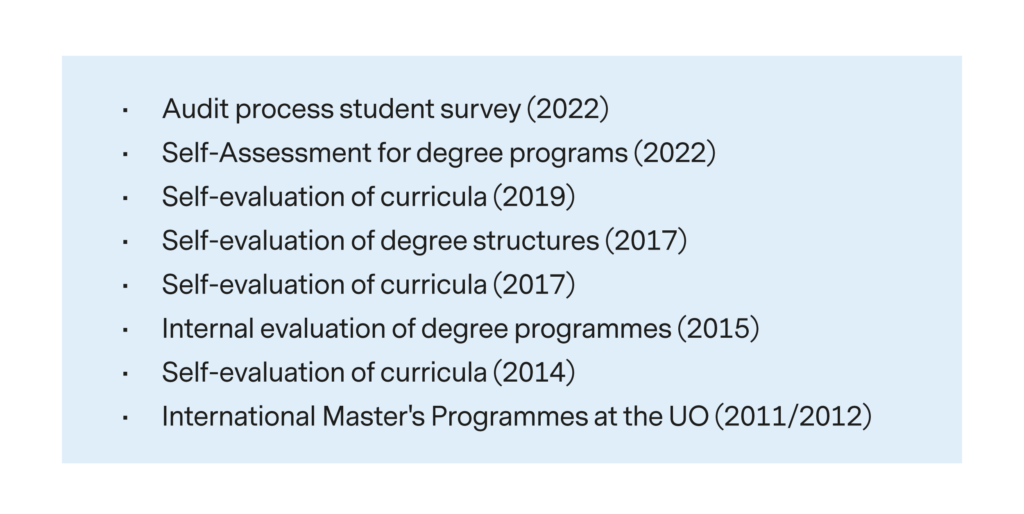The university collects extensive feedback for enhancement
The University of Oulu collects extensive feedback on different levels and through different methods to evaluate and enhance programmes. At the course level, student feedback is collected through Peppi. The student response rate tends to be low. Continuous feedback is collected during each course. Some student societies and faculties organise feedback days or other events to discuss the received feedback. Both staff members and students participate in these events. Faculties also organise other events and Dean’s Coffees to discuss the received feedback. The International Student Barometer and the Finnish Bachelor’s Graduate Survey also provide the university feedback data. In addition, the Student Union carries out surveys on students’ needs. Student representatives participate in various committees to ensure that their voices are heard. There is close cooperation between the Student Union and the university management.
Feedback data is formally analysed at different levels and action is taken to find ways to utilise the feedback. Students reported that they were encouraged to give feedback and that there were various mechanisms to provide feedback in their courses. Students expressed that they would like to give more feedback on degree programmes, not just on individual courses.
Students in the audit visit complained of not seeing the impact of their feedback and they were not sure how teachers utilise the feedback given. Feedback on feedback to students (i.e., information about changes carried out because of student feedback) could be improved. Although feedback is acted upon, the consequences are not always sufficiently discussed with the students. Students feel that the feedback culture at the UO had improved but needed yet to find ways to measure the improvement. Ideas to enhance feedback on feedback were raised by the students, for example, changes made by teachers to their courses or teaching based on student feedback could be broadcasted on public screens.
Degree programmes are evaluated using various methods
As stated in the self-assessment report, the university regularly monitors and evaluates degree programmes offered. Clear instructions need to be followed when new degree programmes are established and all programmes carry out an annual self-evaluation process, except at the doctoral level. The basis for the self-evaluation of programmes are the defined intended learning outcomes.
Various methods and metrics are used to gather data, such as the number of graduates and employment. Feedback from the labour market and stakeholders is sought through various formal channels. Stakeholders have representatives on the faculty councils and are consulted within different programmes. Stakeholder meetings are conducted, and data is gathered from industry associations. External stakeholder collaboration in the planning of education is a well-spread procedure in the faculties. During the audit visit, external stakeholders indicated that graduates have good professional competences.
The UO has developed and utilises a strong system of collecting data that is used extensively by Deans and Deans for Education to discuss, analyse, and valuate the quality of degree programmes. The Programme Directors hold a central role in ensuring the quality of degree programmes and gathering developmental ideas from different sources. The audit team recommends that the UO addresses the role of Programme Directors in the university’s evaluation loop.
The audit team confirms the following enhancement idea: that the university should check the existing interrelatedness of study programmes inside and outside the university. The results could lead to, among other things, unique and innovative study programmes and to new research ideas. JOY, the university of continuous learning, and the open university might function as a basis for such a project.
The university’s support services develop their activities from the perspective of continuous improvement. Feedback is collected extensively on a regular basis and discussed with appropriate bodies for improvement. The support services provide support directly to students and support the teacher tutors, who are the prime support providers for students. The UO offers a wide variety of support for students, but there is room for improvement in ensuring that information on the support available reaches students in general and especially vulnerable student groups. In the student workshop, complaints were raised that feedback provided to educational designers was not acted upon. The audit team recommends the university to ensure that every student knows who to contact when they have a question or want to provide feedback.
